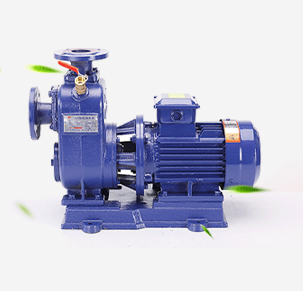Scottish Gaelic
- Afrikaans
- Albanian
- Amharic
- Arabic
- Armenian
- Azerbaijani
- Basque
- Belarusian
- Bengali
- Bosnian
- Bulgarian
- Catalan
- Cebuano
- Corsican
- Croatian
- Czech
- Danish
- Dutch
- English
- Esperanto
- Estonian
- Finnish
- French
- Frisian
- Galician
- Georgian
- German
- Greek
- Gujarati
- Haitian Creole
- hausa
- hawaiian
- Hebrew
- Hindi
- Miao
- Hungarian
- Icelandic
- igbo
- Indonesian
- irish
- Italian
- Japanese
- Javanese
- Kannada
- kazakh
- Khmer
- Rwandese
- Korean
- Kurdish
- Kyrgyz
- Lao
- Latin
- Latvian
- Lithuanian
- Luxembourgish
- Macedonian
- Malgashi
- Malay
- Malayalam
- Maltese
- Maori
- Marathi
- Mongolian
- Myanmar
- Nepali
- Norwegian
- Norwegian
- Occitan
- Pashto
- Persian
- Polish
- Portuguese
- Punjabi
- Romanian
- Russian
- Samoan
- Scottish Gaelic
- Serbian
- Sesotho
- Shona
- Sindhi
- Sinhala
- Slovak
- Slovenian
- Somali
- Spanish
- Sundanese
- Swahili
- Swedish
- Tagalog
- Tajik
- Tamil
- Tatar
- Telugu
- Thai
- Turkish
- Turkmen
- Ukrainian
- Urdu
- Uighur
- Uzbek
- Vietnamese
- Welsh
- Bantu
- Yiddish
- Yoruba
- Zulu
Telephone: +86 13120555503
Email: frank@cypump.com
Dàmh . 02, 2024 15:31 Back to list
Choosing the Right Submersible Pumps for Your Water Management Needs and Applications
Understanding Submersible Pumps Function, Applications, and Advantages
Submersible pumps are a critical component in various industries, designed to transport fluids from one location to another. As the name suggests, these pumps operate while completely submerged in the liquid they are pumping, making them highly effective for a range of applications. In this article, we will explore how submersible pumps work, where they are used, and the benefits they offer.
How Submersible Pumps Work
A submersible pump consists of a hermetically sealed motor that is coupled with a pump body. This design allows the pump to operate completely underwater. The key components include a motor, a pump casing, an impeller, and a discharge line. The electric motor drives the impeller, which creates a centrifugal force that pushes the fluid up through the discharge line.
Submersible pumps are typically powered by electricity, although some models may work with gasoline or other fuels. They are designed to be durable and efficient, often featuring multiple stages to increase their pressure capabilities. The depth at which these pumps can operate varies; some are designed for shallow applications, while others can work at depths of several hundred feet.
Applications of Submersible Pumps
Submersible pumps are widely used across various sectors due to their efficiency and reliability. Some common applications include
1. Water Supply and Distribution These pumps are often used in municipal water supply systems to extract groundwater from wells and deliver it to treatment facilities and storage tanks.
2. Sewage and Wastewater Management Submersible pumps play a crucial role in wastewater treatment facilities, where they help transport sewage and other waste materials to processing plants.
3. Industrial Processes In industrial settings, submersible pumps are utilized to handle various fluids, including chemicals and oils. They are essential for cooling systems, dewatering applications, and managing effluent.
4. Construction During construction projects, submersible pumps are used to remove water from excavations and foundation sites to keep work areas dry.
submersable pumps

6. Flood Control In regions prone to flooding, submersible pumps assist in dewatering areas quickly, preventing damage to property and infrastructure.
Advantages of Submersible Pumps
The use of submersible pumps comes with several advantages, making them a preferred choice in many scenarios
1. Efficiency Submersible pumps are known for their high efficiency. Being submerged reduces the need for suction lifts, allowing them to move large volumes of fluid more effectively.
2. Space-saving Design Since these pumps are compact and can be placed directly in the fluid source, they save valuable surface space compared to traditional pumps that require additional installations.
3. Reduced Noise Levels Operating underwater, these pumps are generally quieter than their above-ground counterparts, making them suitable for residential areas and noise-sensitive environments.
4. Durability Many submersible pumps are constructed from corrosion-resistant materials, enhancing their longevity—especially in harsh environments.
5. Versatility With various models available, submersible pumps cater to different fluids, including clean water, dirty water, and even sludges, making them versatile tools across industries.
6. Automatic Operation Many submersible pumps come with built-in sensors, allowing for automatic operation based on the water level, which enhances energy efficiency and ease of use.
Conclusion
Submersible pumps represent an essential technology in fluid management across numerous fields. Their ability to operate underwater, combined with their efficiency, durability, and versatility, makes them invaluable in water supply, wastewater treatment, construction, agriculture, and beyond. As industries continue to seek reliable and cost-effective solutions for fluid transport, submersible pumps will remain a vital asset in modern infrastructure. Whether for residential use or industrial applications, understanding submersible pumps is key to harnessing their full potential.
-
Heavy-Duty Mining Sludge Pumps - Wear-Resistant Slurry Handling
NewsAug.02,2025
-
Horizontal Split Case Pump with GPT-4 Turbo | High Efficiency
NewsAug.01,2025
-
ISG Series Pipeline Pump - Chi Yuan Pumps | High Efficiency, Durable Design
NewsAug.01,2025
-
Advanced Flue Gas Desulfurization Pump with GPT-4 Turbo | Durable & Efficient
NewsJul.31,2025
-
ISG Series Vertical Pipeline Pump - Chi Yuan Pumps | Advanced Hydraulic Design&Durable Construction
NewsJul.31,2025
-
ISG Series Vertical Pipeline Pump - Chi Yuan Pumps | Energy Efficient & Low Noise
NewsJul.31,2025










